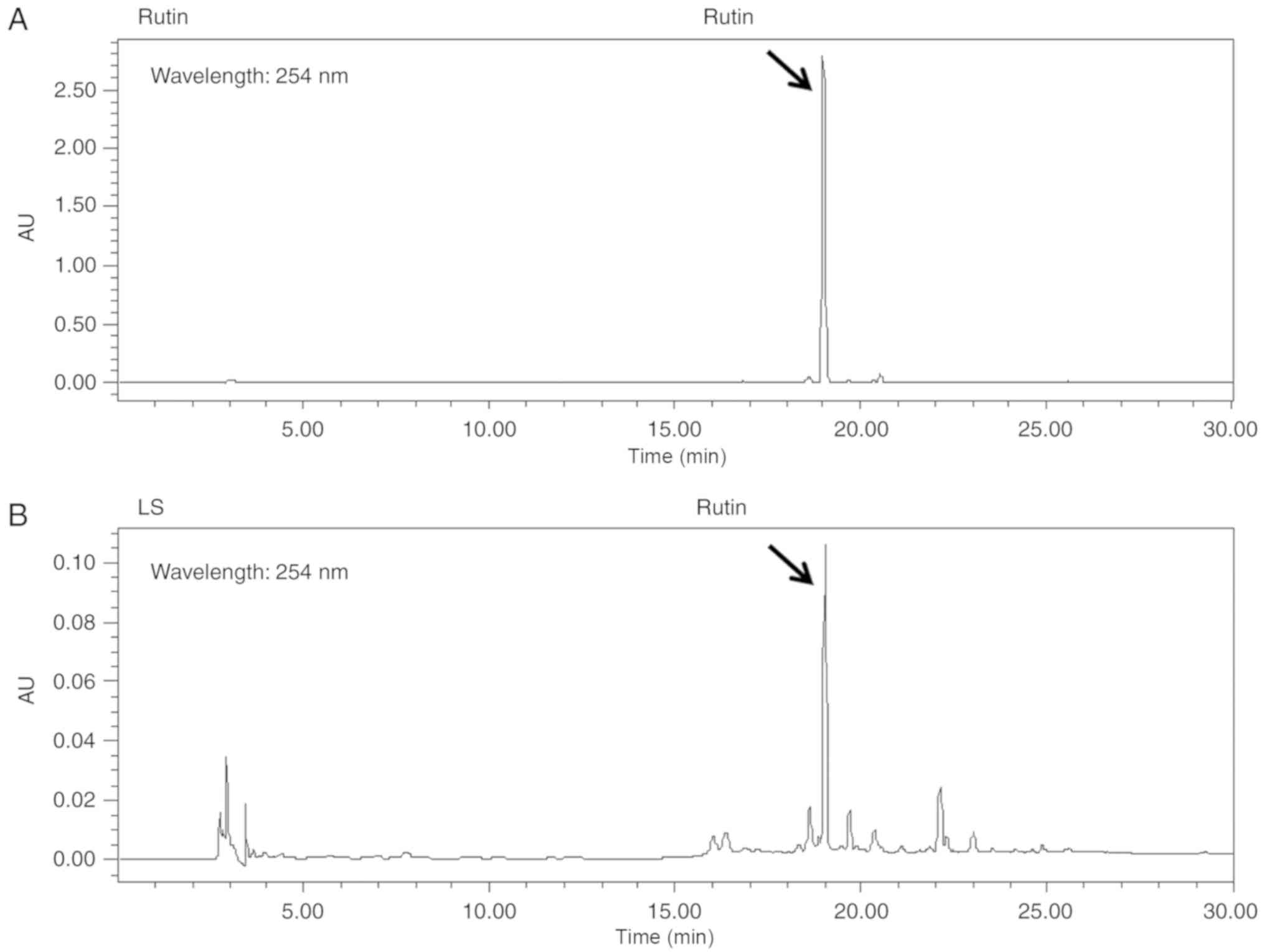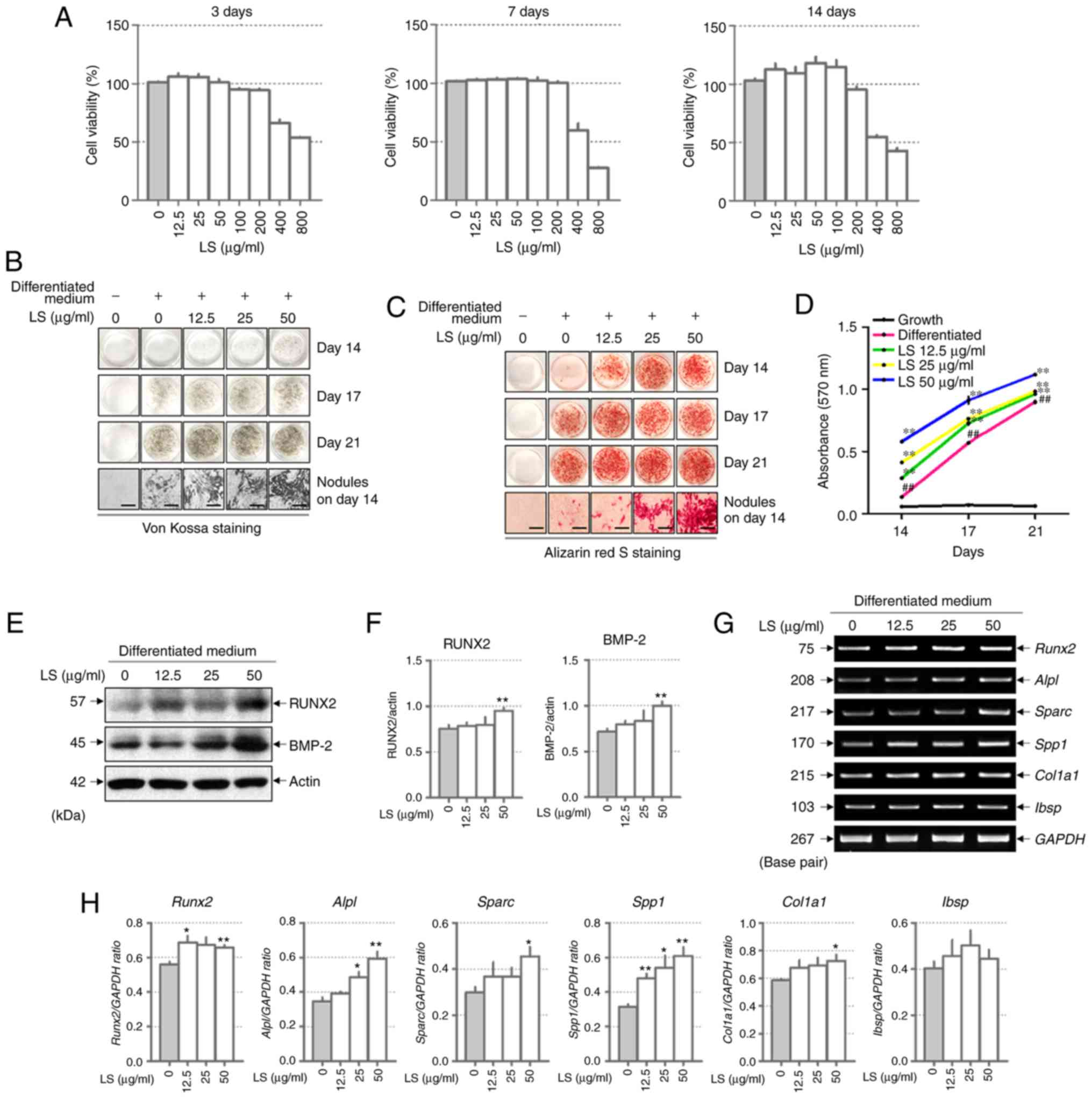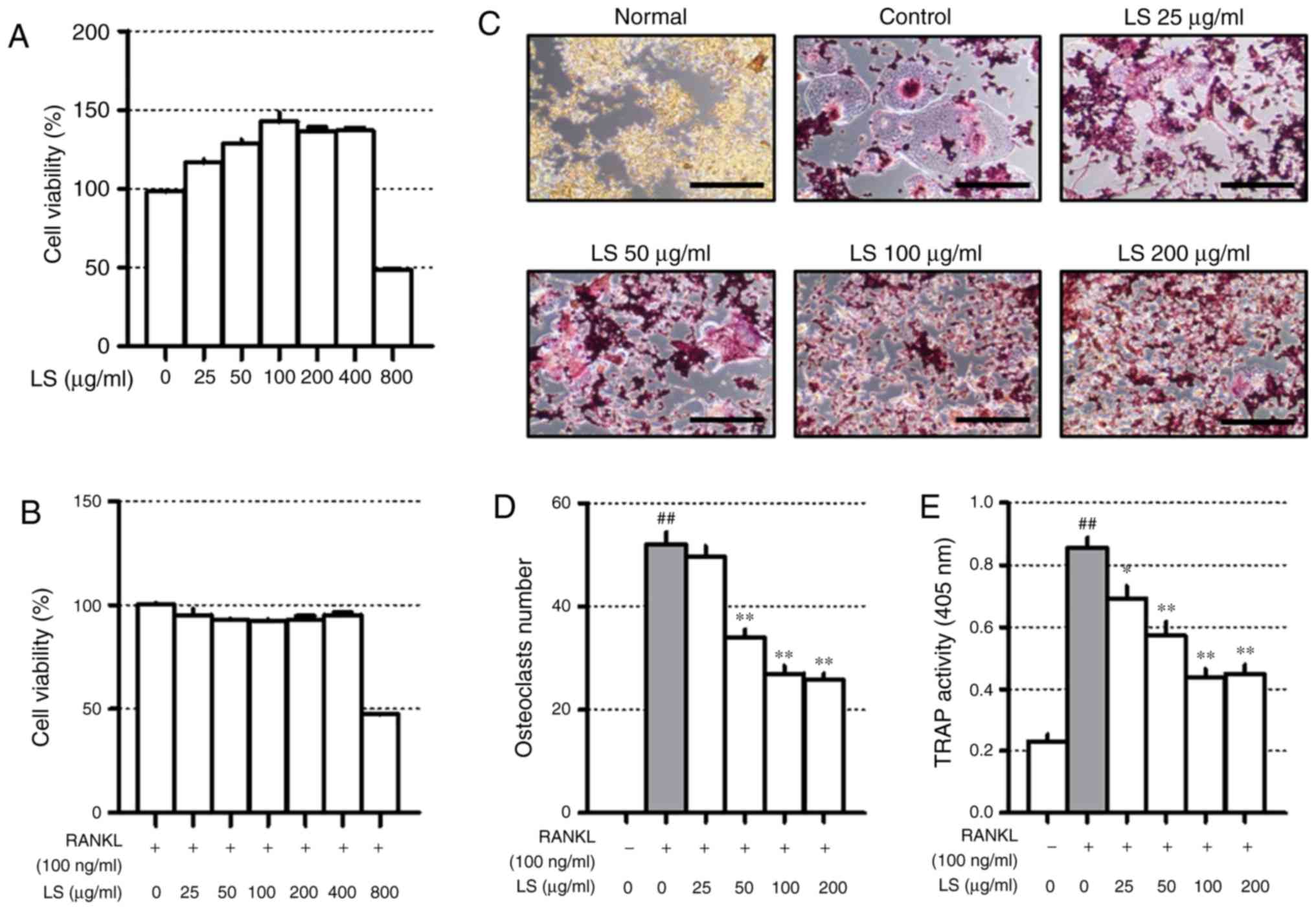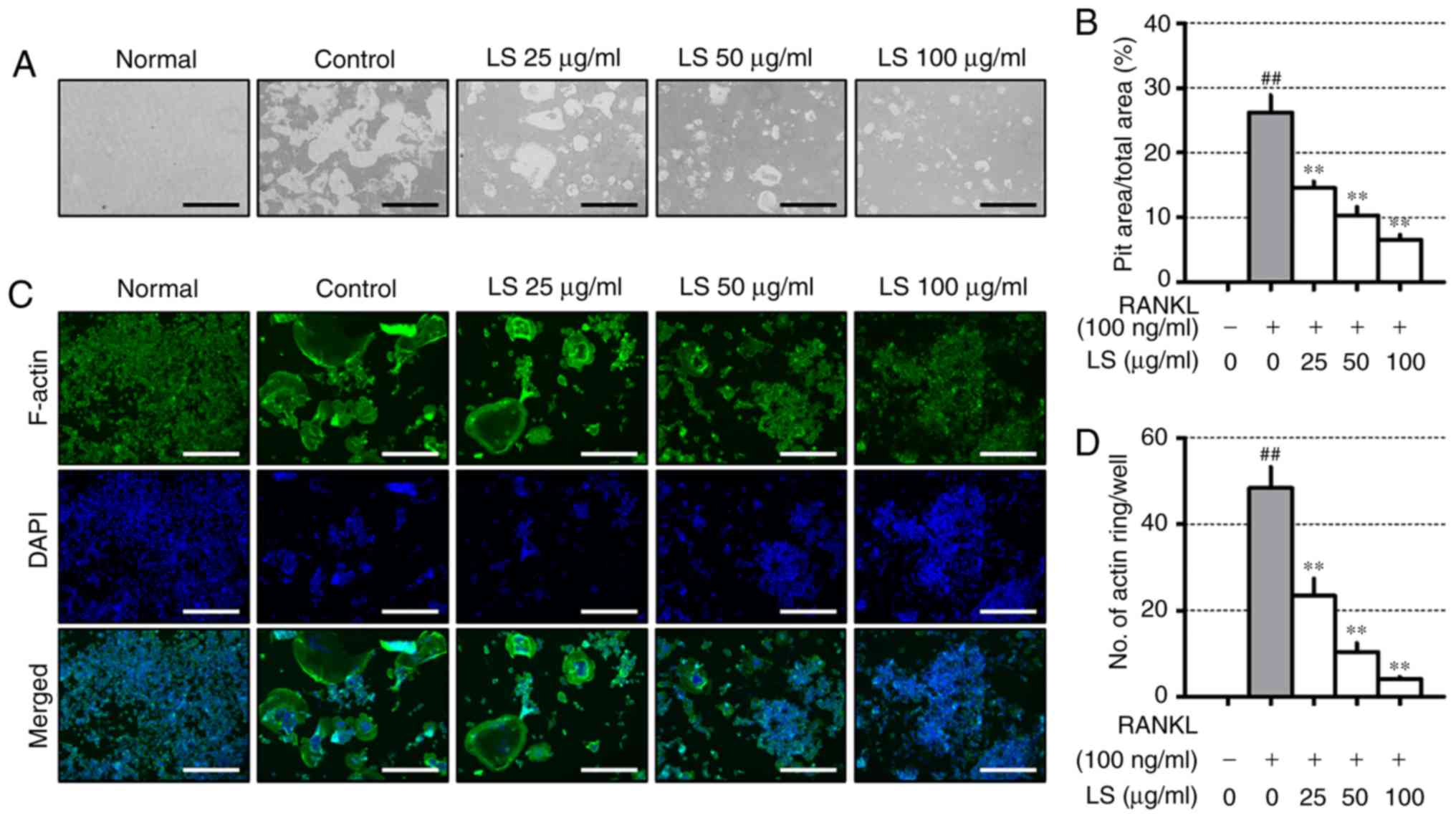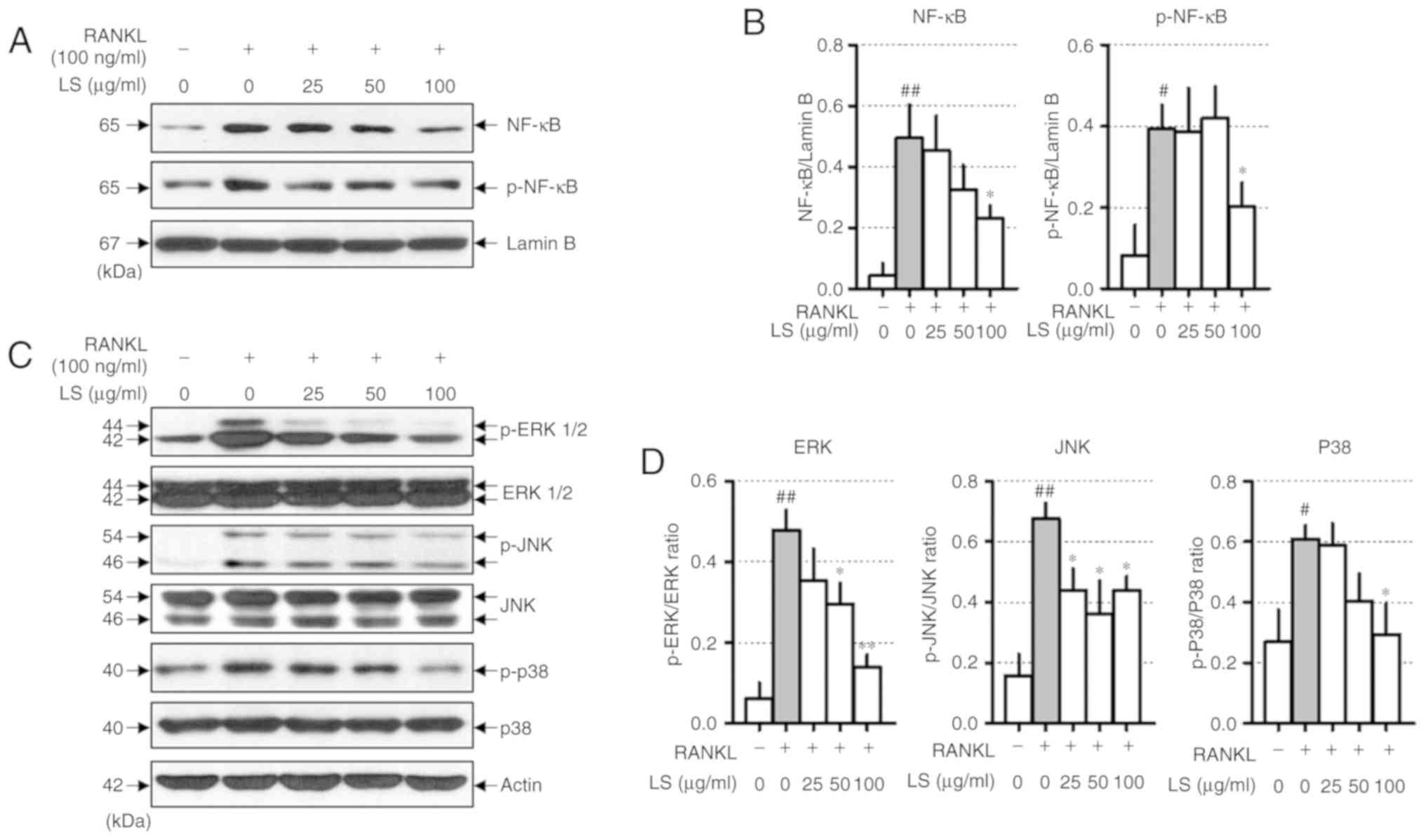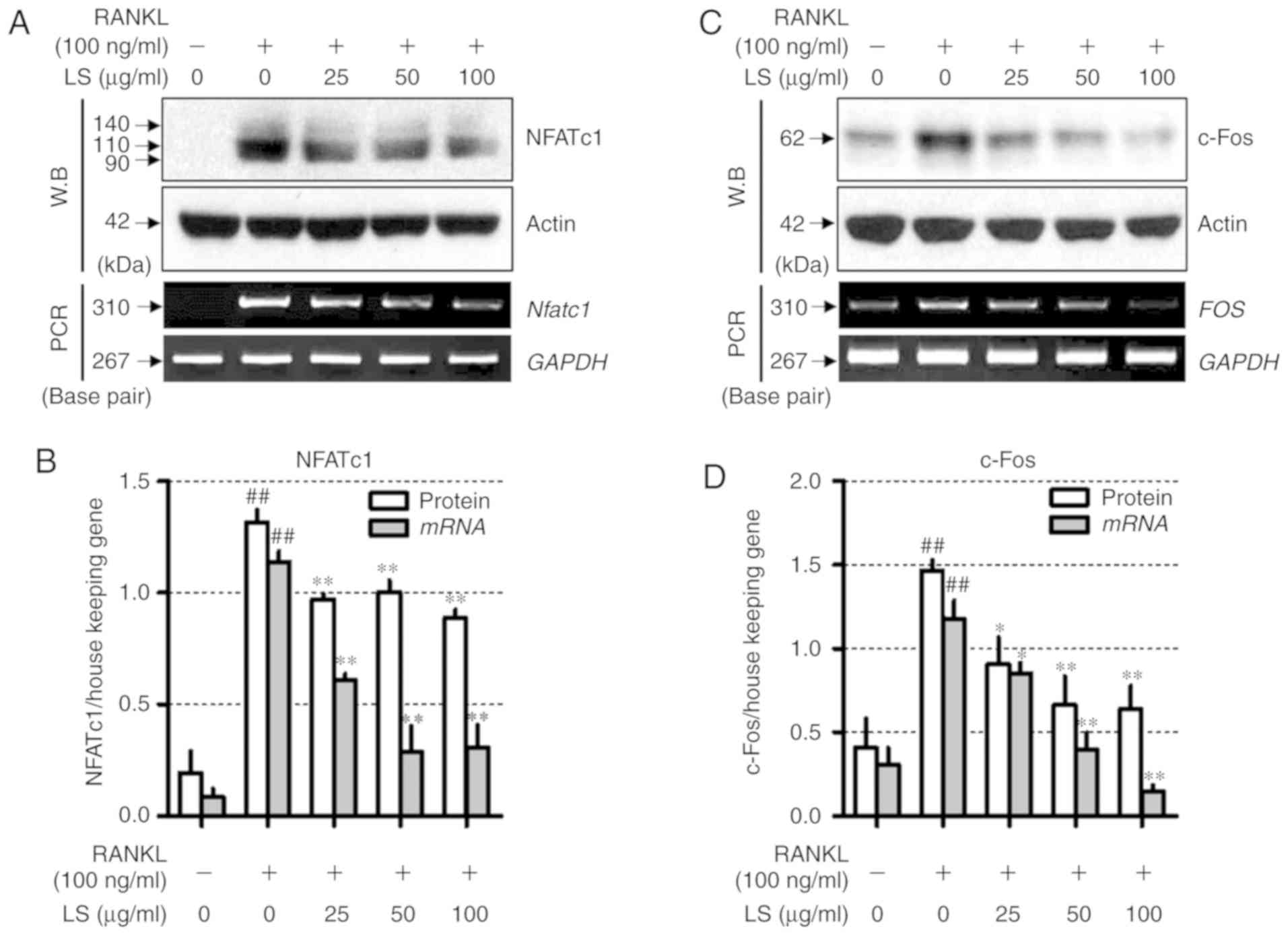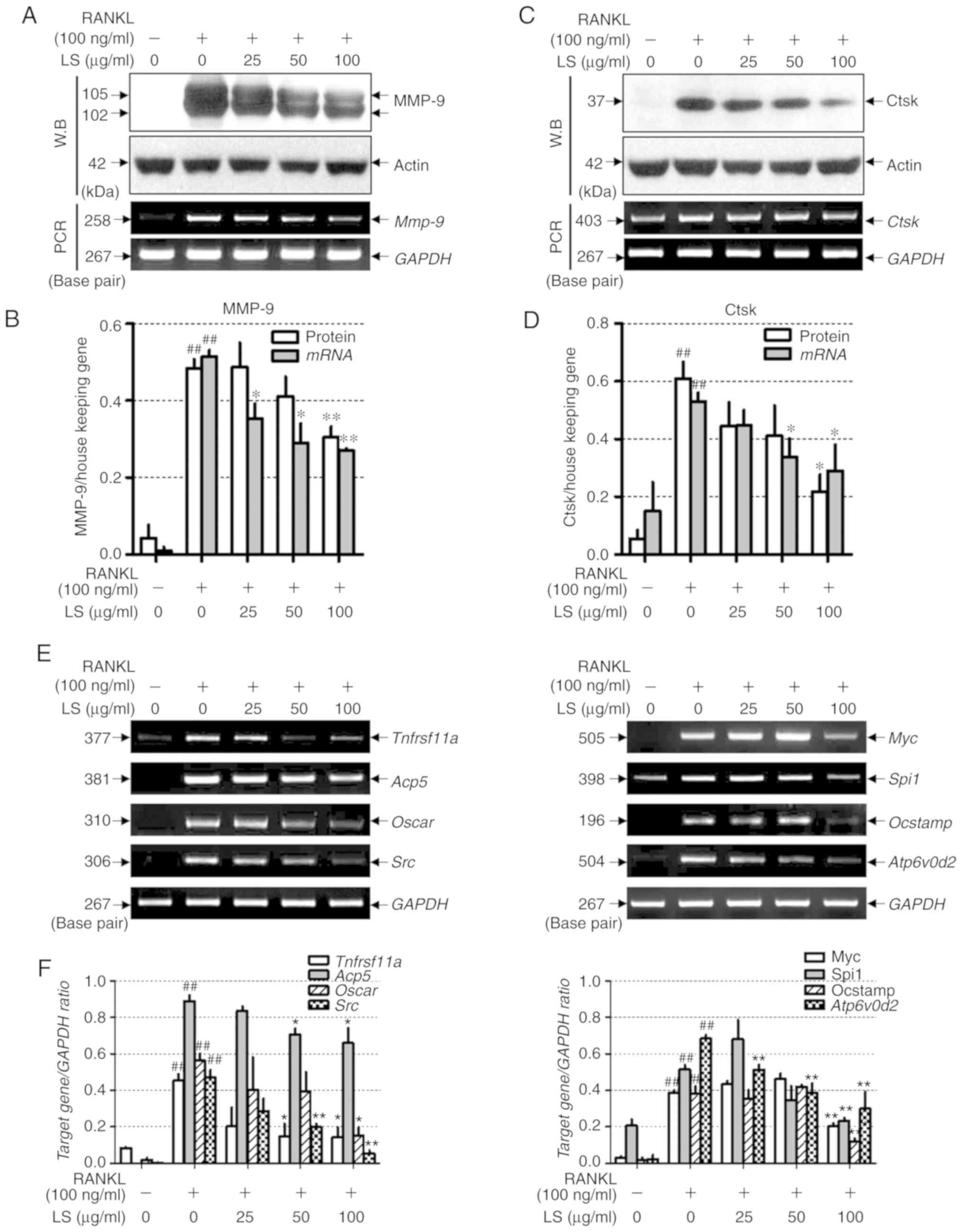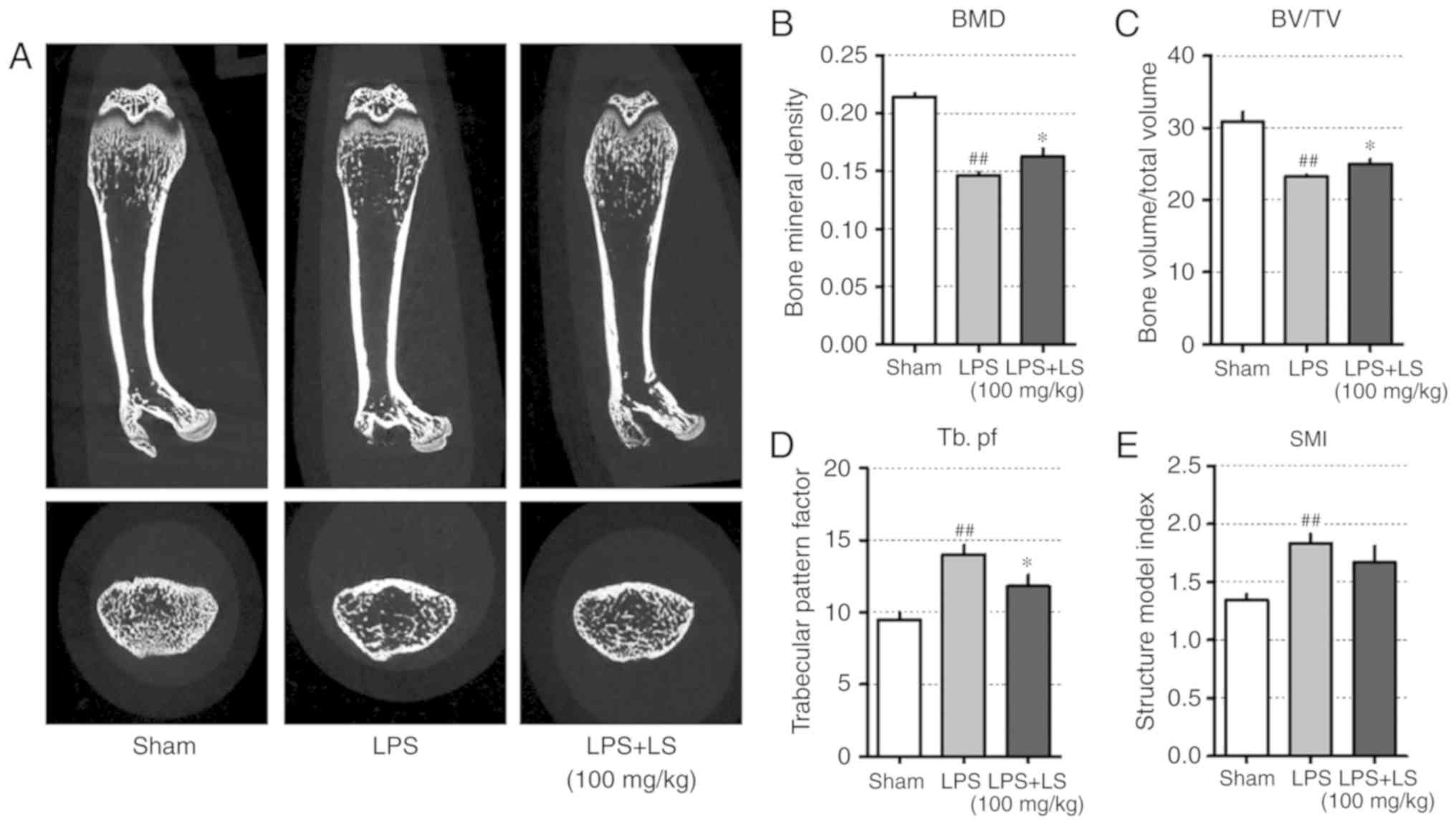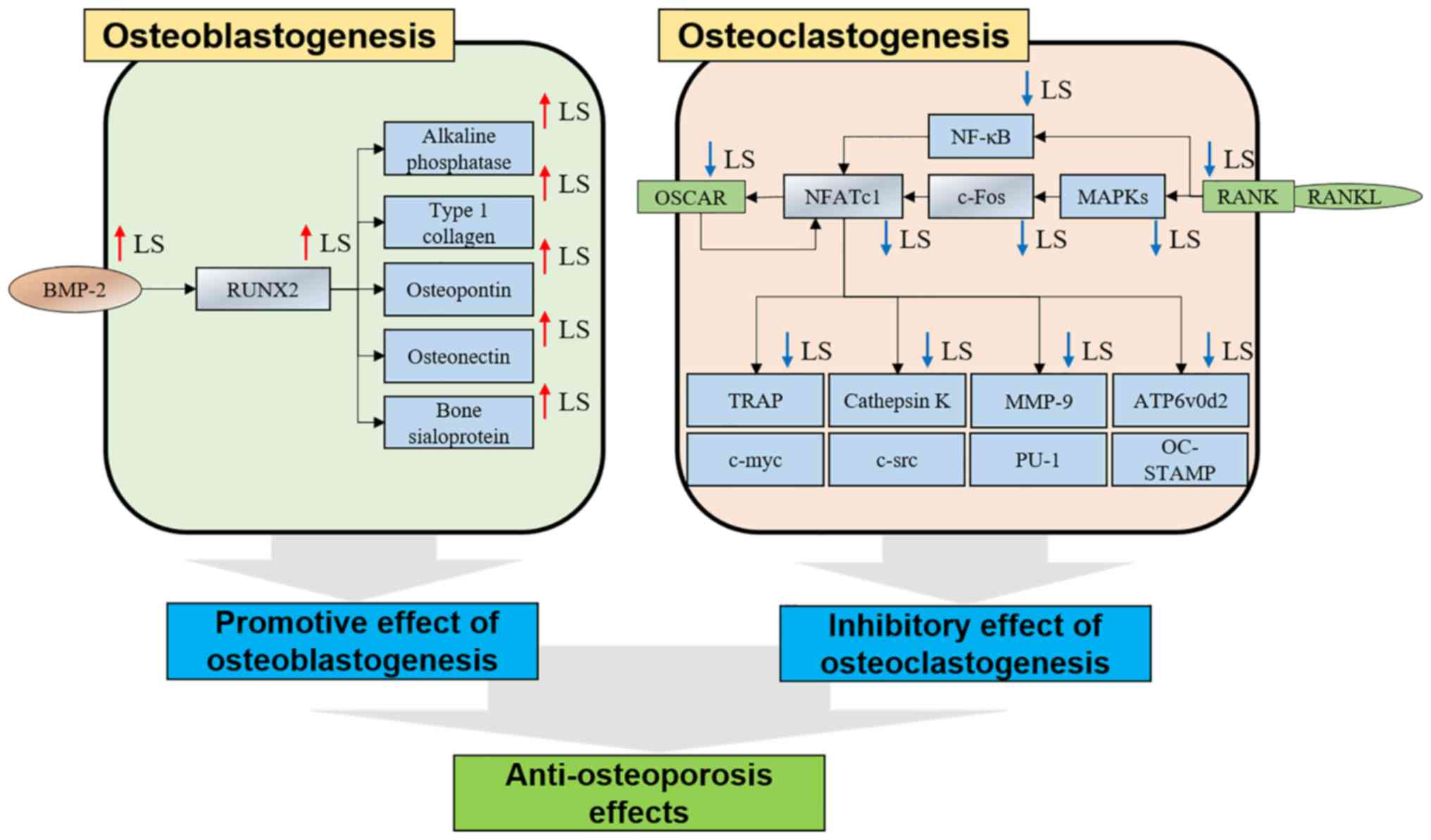|
1
|
Feng X and McDonald JM: Disorders of bone
remodeling. Annu Rev Pathol. 6:121–145. 2011. View Article : Google Scholar
|
|
2
|
Colon-Emeric CS and Saag KG: Osteoporotic
fractures in older adults. Best Pract Res Clin Rheumatol.
20:695–706. 2006. View Article : Google Scholar : PubMed/NCBI
|
|
3
|
Augoulea A, Tsakonas E, Triantafyllopoulos
I, Rizos D, Armeni E, Tsoltos N, Tournis S, Deligeoroglou E,
Antoniou A and Lambrinoudaki I: Comparative effects of denosumab or
bisphosphonate treatment on bone mineral density and calcium
metabolism in postmenopausal women. J Musculoskelet Neuronal
Interact. 17:444–449. 2017.PubMed/NCBI
|
|
4
|
Kennel KA and Drake MT: Adverse effects of
bisphosphonates: Implications for osteoporosis management. Mayo
Clin Proc. 84:632–637; quiz 638. 2009. View Article : Google Scholar : PubMed/NCBI
|
|
5
|
Miyazaki T, Tokimura F and Tanaka S: A
review of denosumab for the treatment of osteoporosis. Patient
Prefer Adhere. 8:463–471. 2014. View Article : Google Scholar
|
|
6
|
Liu T, Gao Y, Sakamoto K, Minamizato T,
Furukawa K, Tsukazaki T, Shibata Y, Bessho K, Komori T and
Yamaguchi A: BMP-2 promotes differentiation of osteoblasts and
chondroblasts in Runx2-deficient cell lines. J Cell Physiol.
211:728–735. 2007. View Article : Google Scholar : PubMed/NCBI
|
|
7
|
Komori T: Regulation of osteoblast
differentiation by Runx2. Adv Exp Med Biol. 658:43–49. 2010.
View Article : Google Scholar
|
|
8
|
Boyce BF and Xing L: Functions of
RANKL/RANK/OPG in bone modeling and remodeling. Arch Biochem
Biophys. 473:139–146. 2008. View Article : Google Scholar : PubMed/NCBI
|
|
9
|
Kim JH and Kim N: Regulation of NFATc1 in
osteoclast differentiation. J Bone Metab. 21:233–241. 2014.
View Article : Google Scholar : PubMed/NCBI
|
|
10
|
Boyle WJ, Simonet WS and Lacey DL:
Osteoclast differentiation and activation. Nature. 423:337–342.
2003. View Article : Google Scholar : PubMed/NCBI
|
|
11
|
Herbology Editorial Committee of Korean
Medicine: Herbology Younglimsa, Seoul. 460–461. 2004.In Korean.
|
|
12
|
Kim DH, Kim HM, Ryu JH, Um JY and Kim SC:
Korean Medical Pharmacology. 3rd edition. Shinnil Books; Seoul: pp.
507–511. 2010, In Korean.
|
|
13
|
Ju DH, Liu MJ, Zhao HY and Wang J:
Mechanisms of 'kidney governing bones' theory in traditional
Chinese medicine. Front Med. 8:389–393. 2014. View Article : Google Scholar : PubMed/NCBI
|
|
14
|
Oliveira AS, Cercato LM, de Santana Souza
MT, Melo AJO, Lima BDS, Duarte MC and Araujo AAS: The ethanol
extract of Leonurus sibiricus L. induces antioxidant,
antinociceptive and topical anti-inflammatory effects. J
Ethnopharmacol. 206:144–151. 2017. View Article : Google Scholar : PubMed/NCBI
|
|
15
|
Sitarek P, Rijo P, Garcia C, Skała E,
Kalemba D, Białas AJ, Szemraj J, Pytel D, Toma M, Wysokińska H and
Śliwiński T: Antibacterial, anti-inflammatory, antioxidant, and
antiproliferative properties of essential oils from hairy and
normal roots of Leonurus sibiricus L. and their chemical
composition Oxid Med Cell Longev. 2017:73840612017.
|
|
16
|
He YL, Shi JY, Peng C, Hu LJ, Liu J, Zhou
QM, Guo L and Xiong L: Angiogenic effect of motherwort (Leonurus
japonicus) alkaloids and toxicity of motherwort essential oil on
zebrafish embryos. Fitoterapia. 128:36–42. 2018. View Article : Google Scholar : PubMed/NCBI
|
|
17
|
Ginaldi L, Di Benedetto MC and De Martinis
M: Osteoporosis, inflammation and ageing. Immun Ageing. 2:142005.
View Article : Google Scholar : PubMed/NCBI
|
|
18
|
Kim JY, Cheon YH, Kwak SC, Baek JM, Yoon
KH, Lee MS and Oh J: Emodin regulates bone remodeling by inhibiting
osteoclastogenesis and stimulating osteoblast formation. J Bone
Miner Res. 29:1541–1553. 2014. View Article : Google Scholar
|
|
19
|
Kim KJ, Yeon JT, Choi SW, Moon SH, Ryu BJ,
Yu R, Park SJ, Kim SH and Son YJ: Decursin inhibits
osteoclastogenesis by downregulating NFATc1 and blocking fusion of
pre-osteoclasts. Bone. 81:208–216. 2015. View Article : Google Scholar : PubMed/NCBI
|
|
20
|
Tschop MH, Speakman JR, Arch JR, Auwerx J,
Bruning JC, Chan L, Eckel RH, Farese RV Jr, Galgani JE, Hambly C,
et al: A guide to analysis of mouse energy metabolism. Nat Methods.
9:57–63. 2011. View Article : Google Scholar : PubMed/NCBI
|
|
21
|
Mizutani H, Ishihara Y, Izawa A, Fujihara
Y, Kobayashi S, Gotou H, Okabe E, Takeda H, Ozawa Y, Kamiya Y, et
al: Lipopolysaccharide of Aggregatibacter actinomycetemcomitans
up-regulates inflammatory cytokines, prostaglandin E2 synthesis and
osteoclast formation in interleukin-1 receptor antagonist-deficient
mice. J Periodontal Res. 48:748–756. 2013.PubMed/NCBI
|
|
22
|
Nason R, Jung JY and Chole RA:
Lipopolysaccharide-induced osteoclastogenesis from mononuclear
precursors: A mechanism for osteolysis in chronic otitis. J Assoc
Res Otolaryngol. 10:151–160. 2009. View Article : Google Scholar : PubMed/NCBI
|
|
23
|
Kim JH, Kim EY, Lee B, Min JH, Song DU,
Lim JM, Eom JW, Yeom M, Jung HS and Sohn Y: The effects of Lycii
Radicis Cortex on RANKL-induced osteoclast differentiation and
activation in RAW 264.7 cells. Int J Mol Med. 37:649–658. 2016.
View Article : Google Scholar : PubMed/NCBI
|
|
24
|
Yang L, Liu S, Mu S, Man X, Ba G, Guo R,
Li Y, Zhou L, Yang L and Fu Q: Leonurine hydrochloride promotes
osteogenic differentiation and increases osteoblastic bone
formation in ovariectomized mice by Wnt/β-catenin pathway. Biochem
Biophys Res Commun. 504:941–948. 2018. View Article : Google Scholar : PubMed/NCBI
|
|
25
|
Wang D, Christensen K, Chawla K, Xiao G,
Krebsbach PH and Franceschi RT: Isolation and characterization of
MC3T3-E1 preosteoblast subclones with distinct in vitro and in vivo
differentiation/mineralization potential. J Bone and Miner Res.
14:893–903. 1999. View Article : Google Scholar
|
|
26
|
Collin-Osdoby P and Osdoby P:
RANKL-mediated osteoclast formation from murine RAW 264.7 cells.
Methods Mol Biol. 816:187–202. 2012. View Article : Google Scholar
|
|
27
|
Bills CE, Eisenberg H and Pallante SL:
Complexes of organic acids with calcium phosphate: The von Kossa
stain as a clue to the composition of bone mineral. Johns Hopkins
Med J. 128:194–207. 1971.PubMed/NCBI
|
|
28
|
Gregory CA, Gunn WG, Peister A and Prockop
DJ: An Alizarin red-based assay of mineralization by adherent cells
in culture: Comparison with cetylpyridinium chloride extraction.
Anal Biochem. 329:77–84. 2004. View Article : Google Scholar : PubMed/NCBI
|
|
29
|
Ogasawara T, Kawaguchi H, Jinno S, Hoshi
K, Itaka K, Takato T, Nakamura K and Okayama H: Bone morphogenetic
protein 2-induced osteoblast differentiation requires Smadmediated
down-regulation of Cdk6. Mol Cell Biol. 24:6560–6568. 2004.
View Article : Google Scholar : PubMed/NCBI
|
|
30
|
Jao HY, Hsu JD, Lee YR, Lo CS and Lee HJ:
Mulberry water extract regulates the osteoblast/osteoclast balance
in an ovariectomic rat model. Food Funct. 7:4753–4763. 2016.
View Article : Google Scholar : PubMed/NCBI
|
|
31
|
Shim KS, Lee CJ, Yim NH, Gu MJ and Ma JY:
Alpinia officinarum stimulates osteoblast mineralization and
inhibits osteoclast differentiation. Am J Chin Med. 44:1255–1271.
2016. View Article : Google Scholar : PubMed/NCBI
|
|
32
|
Golub EE, Harrison G, Taylor AG, Camper S
and Shapiro IM: The role of alkaline phosphatase in cartilage
mineralization. Bone Miner. 17:273–278. 1992. View Article : Google Scholar : PubMed/NCBI
|
|
33
|
Gordon JA, Tye CE, Sampaio AV, Underhill
TM, Hunter GK and Goldberg HA: Bone sialoprotein expression
enhances osteoblast differentiation and matrix mineralization in
vitro. Bone. 41:462–473. 2007. View Article : Google Scholar : PubMed/NCBI
|
|
34
|
Morinobu M, Ishijima M, Rittling SR, Tsuji
K, Yamamoto H, Nifuji A, Denhardt DT and Noda M: Osteopontin
expression in osteoblasts and osteocytes during bone formation
under mechanical stress in the calvarial suture in vivo. J Bone
Miner Res. 18:1706–1715. 2003. View Article : Google Scholar : PubMed/NCBI
|
|
35
|
Huang W, Carlsen B, Rudkin G, Berry M,
Ishida K, Yamaguchi DT and Miller TA: Osteopontin is a negative
regulator of proliferation and differentiation in MC3T3-E1
pre-osteoblastic cells. Bone. 34:799–808. 2004. View Article : Google Scholar : PubMed/NCBI
|
|
36
|
Rosset EM and Bradshaw AD:
SPARC/osteonectin in mineralized tissue. Matrix Biol. 52-54:78–87.
2016. View Article : Google Scholar : PubMed/NCBI
|
|
37
|
Delany AM, Kalajzic I, Bradshaw AD, Sage
EH and Canalis E: Osteonectinnull mutation compromises osteoblast
formation, maturation, and survival. Endocrinology. 144:2588–2596.
2003. View Article : Google Scholar : PubMed/NCBI
|
|
38
|
Hurley MM, Abreu C, Harrison JR, Lichtler
AC, Raisz LG and Kream BE: Basic fibroblast growth factor inhibits
type I collagen gene expression in osteoblastic MC3T3-E1 cells. J
Biol Chem. 268:5588–5593. 1993.PubMed/NCBI
|
|
39
|
Hayman AR: Tartrate-resistant acid
phosphatase (TRAP) and the osteoclast/immune cell dichotomy.
Autoimmunity. 41:218–223. 2008. View Article : Google Scholar : PubMed/NCBI
|
|
40
|
Sheu TJ, Schwarz EM, Martinez DA, O'Keefe
RJ, Rosier RN, Zuscik MJ and Puzas JE: A phage display technique
identifies a novel regulator of cell differentiation. J Biol Chem.
278:438–443. 2003. View Article : Google Scholar
|
|
41
|
Marchisio PC, Cirillo D, Naldini L,
Primavera MV, Teti A and Zambonin-Zallone A: Cell-substratum
interaction of cultured avian osteoclasts is mediated by specific
adhesion structures. J Cell Biol. 99:1696–1705. 1984. View Article : Google Scholar : PubMed/NCBI
|
|
42
|
Iotsova V, Caamano J, Loy J, Yang Y, Lewin
A and Bravo R: Osteopetrosis in mice lacking NF-kappaB1 and
NF-kappaB2. Nat Med. 3:1285–1289. 1997. View Article : Google Scholar : PubMed/NCBI
|
|
43
|
Miyazaki T, Katagiri H, Kanegae Y,
Takayanagi H, Sawada Y, Yamamoto A, Pando MP, Asano T, Verma IM,
Oda H, et al: Reciprocal role of ERK and NF-kappaB pathways in
survival and activation of osteoclasts. J Cell Biol. 148:333–342.
2000. View Article : Google Scholar : PubMed/NCBI
|
|
44
|
David JP, Sabapathy K, Hoffmann O,
Idarraga MH and Wagner EF: JNK1 modulates osteoclastogenesis
through both c-Jun phosphorylation-dependent and -independent
mechanisms. J Cell Sci. 115:4317–4325. 2002. View Article : Google Scholar : PubMed/NCBI
|
|
45
|
Matsumoto M, Kogawa M, Wada S, Takayanagi
H, Tsujimoto M, Katayama S, Hisatake K and Nogi Y: Essential role
of p38 mitogen-activated protein kinase in cathepsin K gene
expression during osteoclastogenesis through association of NFATc1
and PU.1. J Biol Chem. 279:45969–45979. 2004. View Article : Google Scholar : PubMed/NCBI
|
|
46
|
Matsumoto M, Sudo T, Saito T, Osada H and
Tsujimoto M: Involvement of p38 mitogen-activated protein kinase
signaling pathway in osteoclastogenesis mediated by receptor
activator of NF-kappa B ligand (RANKL). J Biol Chem.
275:31155–31161. 2000. View Article : Google Scholar : PubMed/NCBI
|
|
47
|
Grigoriadis AE, Wang ZQ, Cecchini MG,
Hofstetter W, Felix R, Fleisch HA and Wagner EF: c-Fos: A key
regulator of osteoclast-macrophage lineage determination and bone
remodeling. Science. 266:443–448. 1994. View Article : Google Scholar : PubMed/NCBI
|
|
48
|
Takayanagi H, Kim S, Koga T, Nishina H,
Isshiki M, Yoshida H, Saiura A, Isobe M, Yokochi T, Inoue J, et al:
Induction and activation of the transcription factor NFATc1 (NFAT2)
integrate RANKL signaling in terminal differentiation of
osteoclasts. Dev Cell. 3:889–901. 2002. View Article : Google Scholar : PubMed/NCBI
|
|
49
|
Sundaram K, Nishimura R, Senn J, Youssef
RF, London SD and Reddy SV: RANK ligand signaling modulates the
matrix metal-loproteinase-9 gene expression during osteoclast
differentiation. Exp Cell Res. 313:168–178. 2007. View Article : Google Scholar
|
|
50
|
Troen BR: The role of cathepsin K in
normal bone resorption. Drug News Perspect. 17:19–28. 2004.
View Article : Google Scholar : PubMed/NCBI
|
|
51
|
Miyazaki T, Tanaka S, Sanjay A and Baron
R: The role of c-Src kinase in the regulation of osteoclast
function. Mod Rheumatol. 16:68–74. 2006. View Article : Google Scholar : PubMed/NCBI
|
|
52
|
Battaglino R, Kim D, Fu J, Vaage B, Fu XY
and Stashenko P: C-myc is required for osteoclast differentiation.
J Bone and Miner Res. 17:763–773. 2002. View Article : Google Scholar
|
|
53
|
Sharma SM, Bronisz A, Hu R, Patel K,
Mansky KC, Sif S and Ostrowski MC: MITF and PU.1 recruit p38 MAPK
and NFATc1 to target genes during osteoclast differentiation. J
Biol Chem. 282:15921–15929. 2007. View Article : Google Scholar : PubMed/NCBI
|
|
54
|
Kim JH, Kim K, Jin HM, Youn BU, Song I,
Choi HS and Kim N: Upstream stimulatory factors regulate OSCAR gene
expression in RANKL-mediated osteoclast differentiation. J Mol
Biol. 383:502–511. 2008. View Article : Google Scholar : PubMed/NCBI
|
|
55
|
Choi BY, Park CH, Na YH, Bai HW, Cho JY
and Chung BY: Inhibition of RANKL-induced osteoclast
differentiation through the downregulation of c-Fos and NFATc1 by
Eremochloa ophiuroides (centipedegrass) extract. Mol Med Rep.
13:4014–4022. 2016. View Article : Google Scholar : PubMed/NCBI
|
|
56
|
Han SY and Kim YK: Berberine suppresses
RANKL-induced osteoclast differentiation by inhibiting c-fos and
NFATc1 expression. Am J Chin Med. 47:439–455. 2019. View Article : Google Scholar : PubMed/NCBI
|
|
57
|
Lee SH, Rho J, Jeong D, Sul JY, Kim T, Kim
N, Kang JS, Miyamoto T, Suda T, Lee SK, et al: v-ATPase V0 subunit
d2-deficient mice exhibit impaired osteoclast fusion and increased
bone formation. Nat Med. 12:1403–1409. 2006. View Article : Google Scholar : PubMed/NCBI
|
|
58
|
Yang M, Birnbaum MJ, MacKay CA,
Mason-Savas A, Thompson B and Odgren PR: Osteoclast stimulatory
transmembrane protein (OC-STAMP), a novel protein induced by RANKL
that promotes osteoclast differentiation. J Cell Physiol.
215:497–505. 2008. View Article : Google Scholar
|
|
59
|
Miyaura C, Inada M, Matsumoto C, Ohshiba
T, Uozumi N, Shimizu T and Ito A: An essential role of cytosolic
phospho-lipase A2alpha in prostaglandin E2-mediated bone resorption
associated with inflammation. J Exp Med. 197:1303–1310. 2003.
View Article : Google Scholar : PubMed/NCBI
|
|
60
|
Welshons WV, Wolf MF, Murphy CS and Jordan
VC: Estrogenic activity of phenol red. Mol Cell Endocrinol.
57:169–178. 1988. View Article : Google Scholar : PubMed/NCBI
|
|
61
|
Khosla S, Oursler MJ and Monroe DG:
Estrogen and the skeleton. Trends Endocrinol Metab. 23:576–581.
2012. View Article : Google Scholar : PubMed/NCBI
|
|
62
|
Geller SE and Studee L: Contemporary
alternatives to plant estrogens for menopause. Maturitas. 55(Suppl
1): pp. S3–S13. 2006, View Article : Google Scholar : PubMed/NCBI
|
|
63
|
Tao J, Zhang P, Liu G, Yan H, Bu X, Ma Z,
Wang N, Wang G and Jia W: Cytotoxicity of Chinese motherwort
(YiMuCao) aqueous ethanol extract is non-apoptotic and estrogen
receptor independent on human breast cancer cells. J
Ethnopharmacol. 122:234–239. 2009. View Article : Google Scholar : PubMed/NCBI
|















